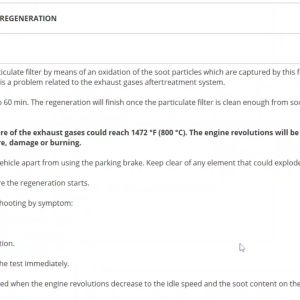
EGR Off: Understanding the Benefits and Risks of EGR Deactivation 🚗🔧
in ECU Tuning on September 9, 2025EGR Off: What Does It Mean? ⚙️
The term ‘EGR off’ refers to the deactivation of the Exhaust Gas Recirculation (EGR) system in vehicles. This can be achieved through ECU remapping or tuning. The EGR system is designed to reduce nitrogen oxide (NOx) emissions by recirculating a portion of the exhaust gases back into the intake manifold. While this is beneficial for emissions control, it can also lead to performance issues and increased engine wear.
Reasons for EGR Off 🔧
- ➡️ Improved Performance: Deactivating the EGR can lead to better throttle response and increased horsepower, especially in performance-tuned vehicles.
- ➡️ Reduced Carbon Build-Up: EGR systems can cause carbon deposits in the intake manifold and valves. EGR off can help mitigate this issue.
- ➡️ Enhanced Fuel Efficiency: Some tuners report improved fuel efficiency when the EGR is disabled, as the engine can operate more efficiently without the recirculated exhaust gases.
How to Achieve EGR Off 🛠️
There are several methods to deactivate the EGR system:
- ➡️ ECU Remapping: This involves modifying the vehicle’s ECU software to disable the EGR function.
- ➡️ EGR Delete Kits: These physical kits replace the EGR valve and related components, effectively removing the system.
- ➡️ Diagnostic Tools: Advanced diagnostic tools can sometimes offer options to disable the EGR system temporarily.
Potential Risks and Considerations ⚠️
While deactivating the EGR system can provide performance benefits, there are important considerations:
- ✅ Legal Implications: In many regions, disabling the EGR system may violate emissions regulations, leading to fines or penalties.
- ✅ Warranty Concerns: Modifying the ECU can void manufacturer warranties.
- ❌ Increased Emissions: Disabling the EGR can lead to higher NOx emissions, which is counterproductive to environmental efforts.
Real-World Examples 🚀
Professional tuners have reported varying results when deactivating the EGR system:
- ➡️ A tuner reported a 15% increase in horsepower on a VW TDI after EGR off, alongside improved throttle response.
- ➡️ Another case highlighted a reduction in intake manifold cleaning intervals due to decreased carbon build-up.
Conclusion ✅
Deactivating the EGR system through ECU tuning can enhance vehicle performance and efficiency. However, it is crucial to weigh the benefits against the potential risks, including legal ramifications and increased emissions. Always consult with a professional tuner or mechanic before proceeding with EGR off modifications.










